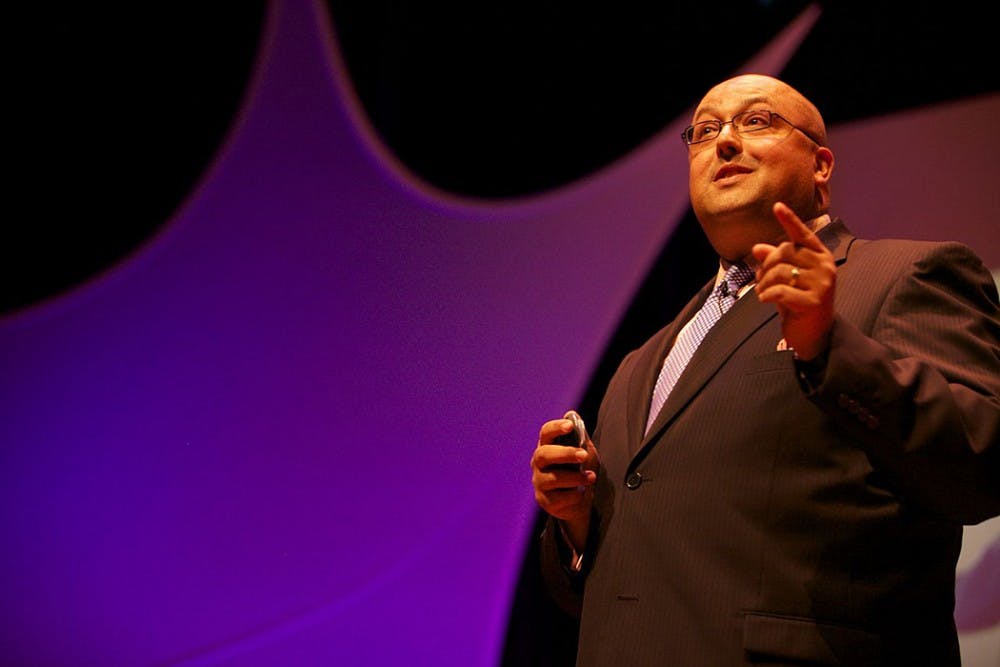ProPublica Live: An Examination of Reporting on Rape was held April 28 in Wilson Hall and focused on the issues of sexual violence, journalistic practices and trust.
The panel featured T. Christian Miller, ProPublica senior reporter and recent Pulitzer Prize winner, and Media Studies and Sociology Prof. Andrea Press.
The panel was moderated by Media Studies Prof. Siva Vaidhyanathan, founding executive director of the University’s Center for Media and Citizenship.
Vaidhyanathan said the University was the “ideal place to hold this conversation.”
The University found itself in a national spotlight after Rolling Stone published the now-retracted article “A Rape on Campus” in 2014. The article detailed an alleged gang rape at the Phi Kappa Psi fraternity house, although the subsequent Charlottesville police investigation found no evidence that the alleged crime took place.
T. Christian Miller was awarded the Pulitzer Prize along with Ken Armstrong for their work entitled “An Unbelievable Story of Rape,” which confronted police failures in the realm of sexual assault cases.
Miller’s work followed the story of a young woman from Washington who reported a rape but was later charged with false reporting. It was later discovered that her reports were true, and her charges were expunged.
Miller described his philosophy by saying, “As a journalist, you are best served by following the road that you find and not the road you want to go down.”
One of the main issues the panel discussed was trust when it comes to the relationship between journalism and acts of sexual violence.
Press talked about the issue from a sociologist’s standpoint, noting “It is very difficult for journalism to engage the most fundamental issues that we face.”
Press argued the Rolling Stone article “did some social good” by contributing to the “awakening” of the sexual misconduct epidemic on college campuses around the country.
“U.Va. is probably representative of many other campuses in the U.S. in terms of the widespread occurrence of sexual assault on campuses,” Press said.
The presence of social stigma surrounding rape was also a topic of concern at the panel.
Miller described social stigma as an obstacle journalists face when it comes to reporting on rape.
The widespread belief that rape is a crime to be ashamed of hinders victims from reporting their cases and if they do wish their names to be anonymous, Miller said.
The audience was able to participate through a question and answer session, which included topics such as accountability and the relationship between journalist and victim.
Miller described the relationship between himself and his subjects as a strict “transaction,” a professional relationship that must not be confused with friendship.
“Following the story, not the ideology, is what’s always saved me,” said Miller.
Third-year College student Sophia Naide said the conversation about the quality of reporting on sexual assault was useful.
“It was really beneficial for us to hear about what kind of thing goes into quality reporting around sex crimes, because U.Va. as a community has been disturbed by poor quality reporting,” Naide said. “I feel like it was really cool for us to be able to see the effects that quality reporting can have on changing the way we think.”







